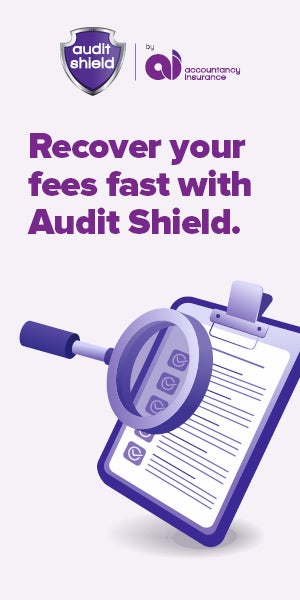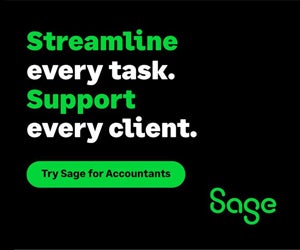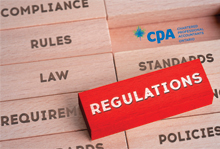What went wrong at PwC Canada: Accounting firm agrees to pay $1.45-million to settle exam cheating scandal

CPA Ontario’s 15-page settlement agreement provides the most insight yet into widespread answer-sharing on PwC’s mandatory internal training tests
TORONTO, ON, Dec 14, 2023 – The Canadian member firm of PricewaterhouseCoopers International has agreed to pay the Chartered Professional Accountants of Ontario $1.45 million over its failure to prevent cheating on internal exams. As reported by Canadian Accountant, PwC Canada has already paid Canadian and US audit regulators more than one million dollars in fines, after disclosing widespread sharing of answers by its accountants on internal training tests.
According to the CPA Ontario settlement agreement, PwC self-reported that 445 of its professional staff across its Ontario offices, primarily in its assurance practice, participated in answer sharing during mandatory internal training assessments between 2016 and 2020. This included training on accounting and auditing standards, audit strategy, planning, procedures and documentation, professional integrity and independence matters, and specific issues that arise in audits.
CPA Ontario, the regulatory body responsible for the licensing and oversight of chartered professional accountants and accounting firms in Ontario, announced that PwC Canada admitted to breaches of the CPA Ontario code of professional conduct. The accounting firm has agreed to pay — pending approval of the settlement by the CPAO discipline committee — a fine of one million dollars and costs in the amount of $455,000.
Answer-sharing at PwC part of the "collaborative culture"
The 15-page settlement agreement provides the most insight yet into the exam cheating at PwC. While mostly confined to assurance staff, the conduct was widespread, ranging across positions and locations, and not only openly known but accepted as part of the PwC culture.
PwC professional staff (CPAs) undergo internal training for a variety of reasons, including regulatory compliance and professional development, which was tracked by training software.
The core assurance curriculum was developed by PwC’s Global Assurance Quality Learning and Education function. But PwC Canada’s Learning and Development Group develops Canada-specific training to supplement the GAQ L&E assurance.
The kind of training professional staff take depends on a variety of factors but they have an unlimited number of attempts to complete assessments and may refer to their training material, including their own notes and summaries.
From 2016 to 2020, answer-sharing documents were created and shared among staff on Google Drive, within the Google Workspace platform created by PwC. In 2022, the PCAOB stated that, “From at least 2016 to early 2020, more than 1,200 PwC Canada personnel were involved in improper answer sharing related to training tests.” The CPA Ontario agreement delves deeper into the numbers. Four hundred and forty-five CPA Ontario members and students were “associated with answer-sharing activity to some extent.” The majority (93%) were assurance staff and the a majority (292) were based in Toronto, however, staff at all of PwC’s Ontario offices were involved to varying degrees.
According to the agreement, a “consistent mindset” existed at PwC, in which answer-sharing was “both widely-known and appropriate,” part of a “collaborative culture,” and the tests were open book. While the vast majority of answer-sharers were associates and senior associates, the behaviour also included managers, directors, and partners.
Systemic answer-sharing went undetected by senior management. The written standards and policies in place at the PwC network and firm level did not state that mandatory internal training assessments were to be completed independently.
Exam cheating at accounting firms a global phenomenon
In recent years, regulators have levied fines against accounting firms globally, including all of the Big Four (Deloitte, Ernst & Young, KPMG, and PwC) and in locations such as Hong Kong, the Netherlands, and the United Kingdom. In its 2022 settlement agreement, the “extraordinary cooperation” of PwC Canada, in reporting its internal investigation into answer-sharing by the PCAOB, was cited for limiting the monetary penalty imposed by the American regulator.
According to the CPA Ontario settlement:
PwC admits it failed to have appropriate policies and procedures and a system of quality control in place to ensure that mandatory internal training assessments were being completed independently. The firm failed to adequately communicate the requirement for independent completion and did not have appropriate procedures in place to prevent, detect or monitor for answer sharing. The mandatory assessment process was therefore not effective in demonstrating whether the substantive professional competencies being evaluated were in fact attained.
“PwC failed to create and foster a culture in which the high standards of ethics and integrity required of professional staff were conveyed and applied to internal training assessments,” said Janet Gillies, CPA, CA, executive vice-president of regulatory and standards at CPA Ontario. “This failure undermines the public’s confidence in the ethics and integrity of the participating staff and the profession as a whole.”
This is the third regulatory settlement announced by CPA Ontario in just over a month. The provincial regulator announced million-dollar settlements with Deloitte Canada and Marcum LLP over professional conduct breaches. In November, following media inquiries, PwC Canada confirmed that it terminated roughly 150 employees or approximately two per cent of its workforce.
Colin Ellis is a contributing editor to Canadian Accountant.








(0) Comments